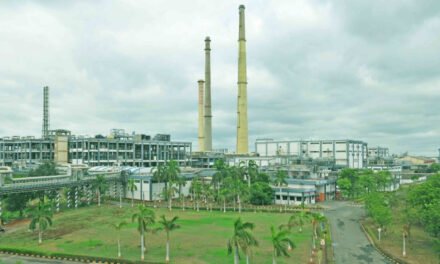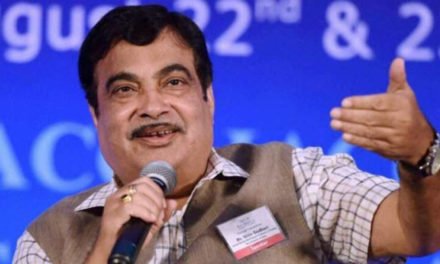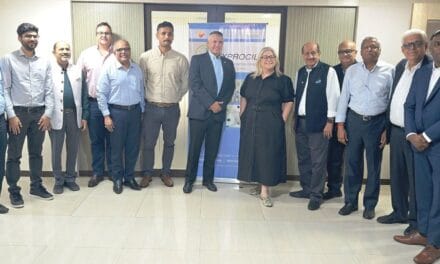 There are tremendous opportunities in the global market, and the Indian textile industry should scale up capacity to tap the same, Minister of State (MoS) for Textiles Darshana Jardosh has said. Stating that the government will provide all possible support, she added that the Production Linked Incentive (PLI) scheme will support in building large capacity.
There are tremendous opportunities in the global market, and the Indian textile industry should scale up capacity to tap the same, Minister of State (MoS) for Textiles Darshana Jardosh has said. Stating that the government will provide all possible support, she added that the Production Linked Incentive (PLI) scheme will support in building large capacity.
Jardosh was speaking at the 14th Edition of Texcon, jointly organised by the Confederation of Indian Industry (CII) and the Ministry of Textiles in New Delhi on Friday. The theme of the conference was “Capitalizing the Emerging Opportunities to Create a Competitive Textiles & Apparel Sector”.
She said that the government will cover the entire value chain under the second version of PLI scheme (PLI-2), so who were left out in the first version of the scheme can also benefit.
She said that India has capability to become hub of technical textiles, geo textiles and man-made fibre. The country can grow in silk textile export also. She underlined the government’s thrust to enable the industry to tap the opportunities during the changing geo-political scenario.
She informed that for the first time the textile and agriculture ministries came together recently to streamline the entire value chain starting from cotton (fibre) to garment. She mentioned that branding of Indian textiles is also a focus area, so global market can acknowledge its capability.
In the inaugural session of the conference Textiles Secretary Rachna Shah said that the industry should diversify and focus on emerging markets. “Currently, 50 per cent of our exports are to the developed countries.” She said that the National Technical Textile Mission (NTTM) will focus on the emerging sector. At present, the Indian industry is more focused on cotton-based textiles, but MMF and technical textiles also have vast opportunities.
The secretary said that Indian industry will have to scale up its capacity to tap the opportunity created as most global brands are looking for China Plus One sourcing base. According to her, PM MITRA and PLI schemes will give big push to scale up production capacity. “The government is working at an advanced stage to finalise awardee states under PM MITRA scheme. The scheme has been planned to build textile park of at least 1,000 acres,” Shah told on the sidelines of the event.
In the inaugural session, consultancy company Wazir Advisors Co-founder & Partner Prashant Agrawal said that India’s golden time is coming. In post-COVID world, India is the only country that can substitute China for supplies to global brands. He estimated that India will have to invest around $100 billion to build up large-scale capacity for grabbing the opportunity.
Gautam Nair, Managing Director of Matrix Clothing, said that India’s signing of the Free Trade Agreements (FTAs) with the United Kingdom and the European Union will provide support to Indian exporters. PLI scheme will also provide necessary support to the industry for capacity building.
During another session on ‘Global Geo-Political Shift: India’s Growth Opportunity, Shubhra, Trade Advisor of Ministry of Textiles advised the industry to come out of its comfort zone to face the challenges and tap the opportunity. The industry needs to think out of the box and take risk, so it can gain from the new opportunity available in the present world.
Raja M. Shanmugham, Managing Director of Tiruppur-based company Warsaw International and President of Tiruppur Exporters’ Association (TEA), said that the government should replicate Tiruppur like clusters in other parts of the country. He also advised that the government should focus on day-to-day problems faced by the exporters. “They face challenges of higher cost of production, lower productivity and unavailability of mid-level skilled staff to increase capacity.”
Pallabh Banerjee, Joint Managing Director of Pearl Global Industries Ltd, pointed out there is longer gestation period in India compared to Vietnam and Bangladesh, if anyone plans to set up a new unit.
During the session on ‘Diversification of Supply Chain: Scaling up MMF and Cotton’, Manmohan Singh, Chief Marketing Officer, Grasim Industries Ltd, said that viscose fibre segment witnessed slower growth despite its cotton-like properties. India has capacity to build large scale capacity in the segment. He also shared Grasim’s initiative in research and development.
Ajay Sardana, President & Head Strategy and Business Development – Polyester, Reliance Industries, said the government’s focus should be on providing a level playing field for all the segments of the textile sector. He said India has capacity in polyester segment, and the government should start mission to boost polyester segment also.
Kulin Lalbhai, Chairman, CII National Committee on Textile & Apparel and Executive Director of Arvind Ltd, said during a special session that the industry has got target to expand annual textiles export from $40 billion to $100 billion by 2030. Now, it is for the industry has to chalk out strategy and work in a planned manner to achieve the target.
There was in-depth discussion between industry experts during the sessions on ‘Textile Recycling – Perspectives and Challenges’ and ‘FTAs – A key driving force for future investments’.






















